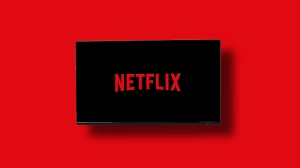
On Tuesday this week, popular streaming platform Netflix announced it will increase prices on its subscription tiers worldwide.
The move comes after a significant rise in subscriber numbers, particularly in countries like the United States and Canada. According to reports, Netflix has seen an influx of 19 million new subscribers in recent years, bringing its total to 302 million global users.
The recent spike in subscribers is largely attributed to the highly anticipated boxing match between Mike Tyson and Jake Paul in November. The event reportedly drew 108 million viewers globally, making it the most-streamed sporting event in history. Netflix later hosted two NFL games on Christmas Day, which averaged 30 million global viewers ,the most-streamed football games ever.
The price hikes, announced Tuesday, will affect all tiers of service. The premium monthly membership without ads will rise from ₦7,000 to ₦8,500, while the standard account with ads will go from ₦5,500 to ₦6,500. The basic plan will increase from ₦3,500 to ₦4,000, and the mobile plan will go up from ₦2,200 to ₦2,500.
Netflix also reported its quarterly revenue rose 16%, surpassing $10 billion for the first time in its history. Operating income totaled $2.3 billion, marking a 52% year-over-year increase. Additionally, the company announced a $15 billion stock buyback.
The surge in paid subscriptions further solidifies Netflix’s dominance in the streaming market. In recent years, legacy media companies have invested heavily in launching their own streaming platforms to compete, as traditional cable and broadcast audiences continue to decline.
On the company’s investor call, Netflix co-CEO Ted Sarandos emphasized the streamer’s recent success with live sporting events.
“Even in an amazing quarter where we had three huge live events — we had an incredible fight, two NFL games — we had one of our biggest TV series ever in Squid Game season two, all very successful events and titles that we are thrilled about,” Sarandos said.
He added that Netflix will continue to look to live events and sports as key drivers of future growth.





